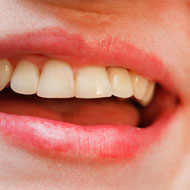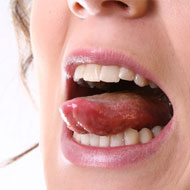- General Articles
- General Pregnancy Questions
- Baby Growth
- Pregnancy Diet
- Miscarriage
- During Pregnancy
- Twin Pregnancy
- Toddler Meals
- Home Remedies During Pregnancy
- Breastfeeding
- Pregnancy Week By Week
- Pregnancy Tests
- Ectopic Pregnancy
- Pregnancy Signs and Symptoms
- Pregnancy Stages
- Potty Training
- Fetal Development
- Preschooler
- Postpartum Depression
- Toddler Illness
- Baby Care
- After Pregnancy
- Molar Pregnancy
- During Delivery
- Beauty and Style
- Pregnancy Clothing
- Preconception
- Fertility
Dental Care Guidelines During Pregnancy
Dental care is essential for women during pregnancy. Research shows that poor dental hygiene can cause complications in pregnancy. The bacteria from the mother’s mouth can be transmitted through the blood to the unborn child and this can lead to various problems like premature delivery, infection of the new born and so on. Pregnancy brings about hormonal changes and one of the effects is bleeding gums, also known as periodontal disease and pregnancy gingivitis. The gums become tender and hyper-sensitive and this could affect the well-being of your growing baby.
Research shows that eighteen out of every 100 premature births happen due to periodontal disease. If your pregnancy is well-planned, make a trip to the dentist before you plan to get pregnant. Have your teeth cleaned, your gums checked and your teeth examined for any cavities or dental caries.
There has been evidence that dental caries are passed on to children by mothers. It is important to tell your dentist that you are pregnant and more importantly what stage of pregnancy you’re at. Dental treatments are not advised during the first and the second half of the third trimester, as these are very important and sensitive times in the development and growth of the baby. Some pregnant women also suffer from morning sickness; cleansing of the mouth is very important after vomiting.
Routine Dental Care during Pregnancy
There are some routine dental care tips that you can follow during your pregnancy to ensure a healthy dental hygiene regimen, these are:
- Use a fluoride toothpaste and brush twice daily
- Floss at least once a day
- Use a soft-bristled and good quality brush
- If you have morning sickness, rinse your mouth with baking soda. A solution can be prepared using one cup of water mixed with one teaspoon of baking soda
- Visit a dentist to get your teeth cleaned and your gums checked
Care of Teeth during Pregnancy Trimesters
Consult a doctor as well as a dentist when you know you know you’re pregnant. This is important because based on your trimester; certain treatments and procedures will be advised to you. First trimester treatments include x-rays if needed; this is deemed safe during this period however since this is the time fetal organ development takes place, it’s best to let your doctor and dentist decide what’s ideal. The period between the 14th and the 20th weeks is best for treatments. Any pre-arranged, scheduled or cosmetic dental surgeries should be done post delivery as far as possible.
Eating Right for your Teeth
Eating the right foods is also vital to dental care when you’re pregnant. You should maintain a healthy diet. Pregnant women have many cravings, often sweet ones; however it’s a known fact that sugar intake does damage to your teeth. So avoid eating too many sugary foods, and if you must eat something sweet, only have it at mealtimes. Avoid carbonated beverages, instead have water or low-fat milk, as it is a natural source of calcium. A good intake of calcium is very essential for your baby’s growth and for you. Eat whole fruits instead of fruit-juices.
Vitamin D helps the body to make use of calcium, and foods that contain it are margarine, salmon, eggs and cheese. To reduce tooth-decay, chew sugarless gum after eating and eat nutritious foods in small amounts throughout the day.
Useful tips for Tooth-care during Pregnancy
- Visit your dentist regularly
- If you have morning sickness, brush the teeth after an hour of vomiting
- Use low-sud fluoride toothpastes
- Use fluoridated mouthwashes
- Increase your intake of calcium with milk, cheese, yoghurt etc.
Remember that control of oral diseases will improve the quality of life for your unborn baby and you. This will also reduce the risk of transmitting dental bacteria to the child in you.
Read more articles from the During Pregnancy Category.



 7 Must-Haves Before Your Baby Arrives
7 Must-Haves Before Your Baby Arrives Bonding Games for Babies
Bonding Games for Babies DIY Baby Bath Towel Apron
DIY Baby Bath Towel Apron Common Late Pregnancy Fears
Common Late Pregnancy Fears